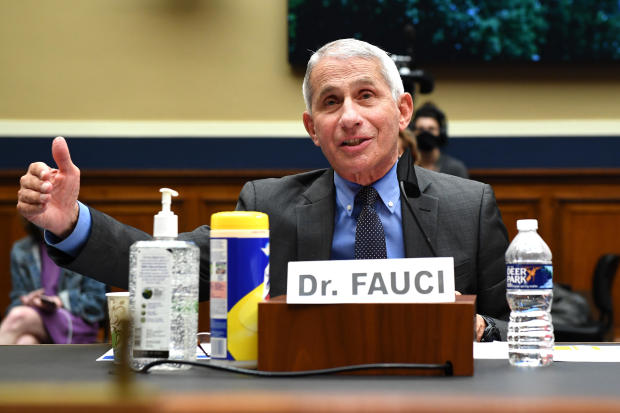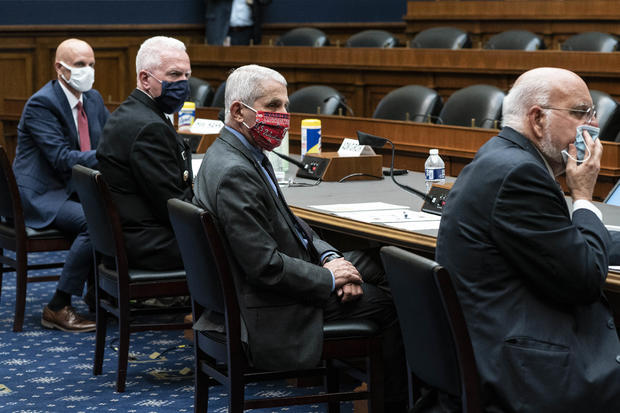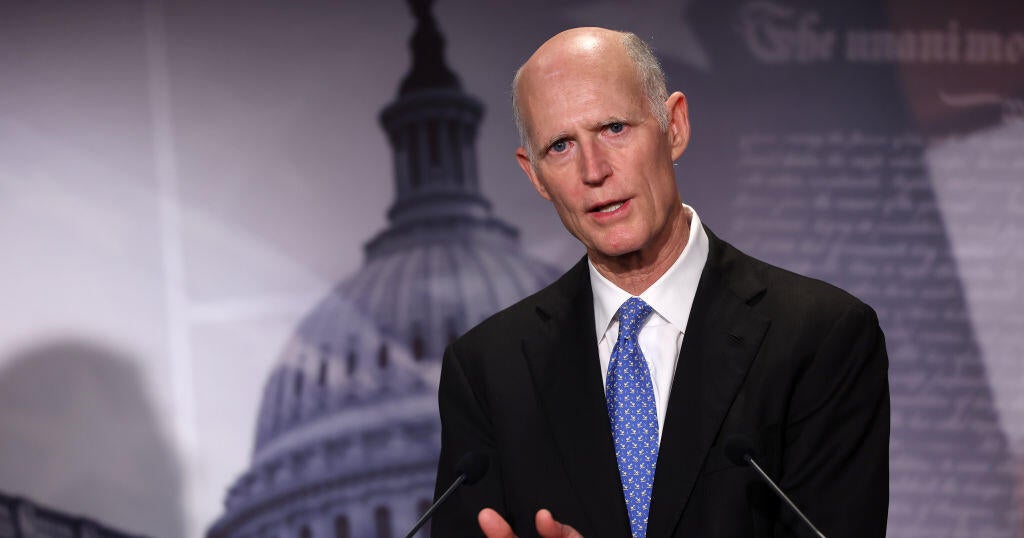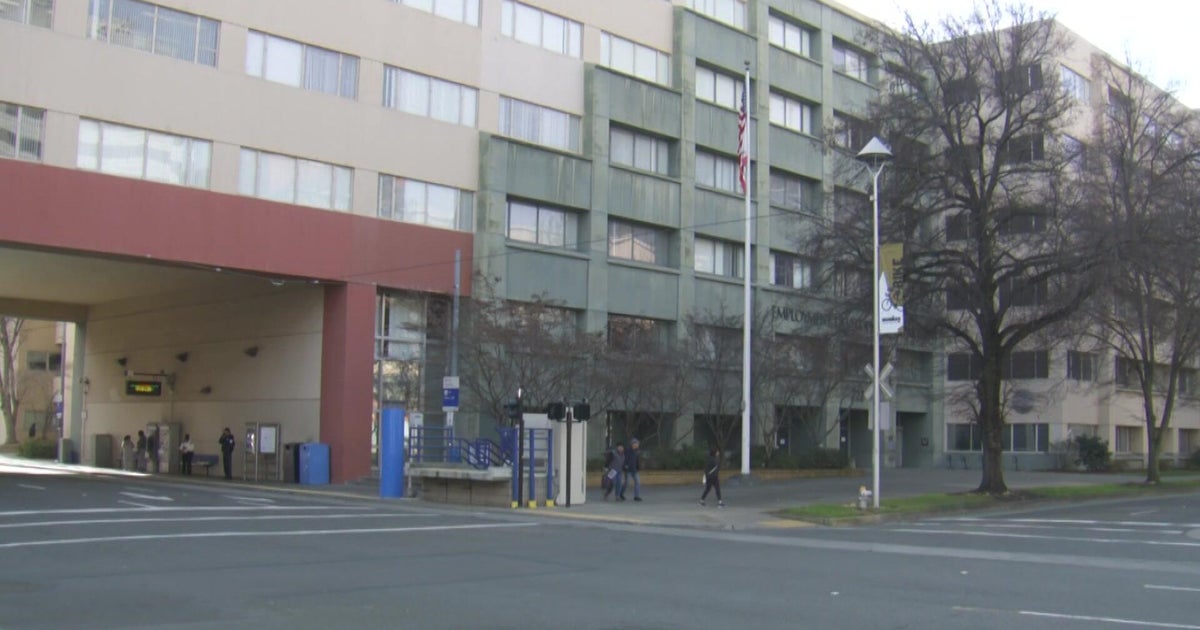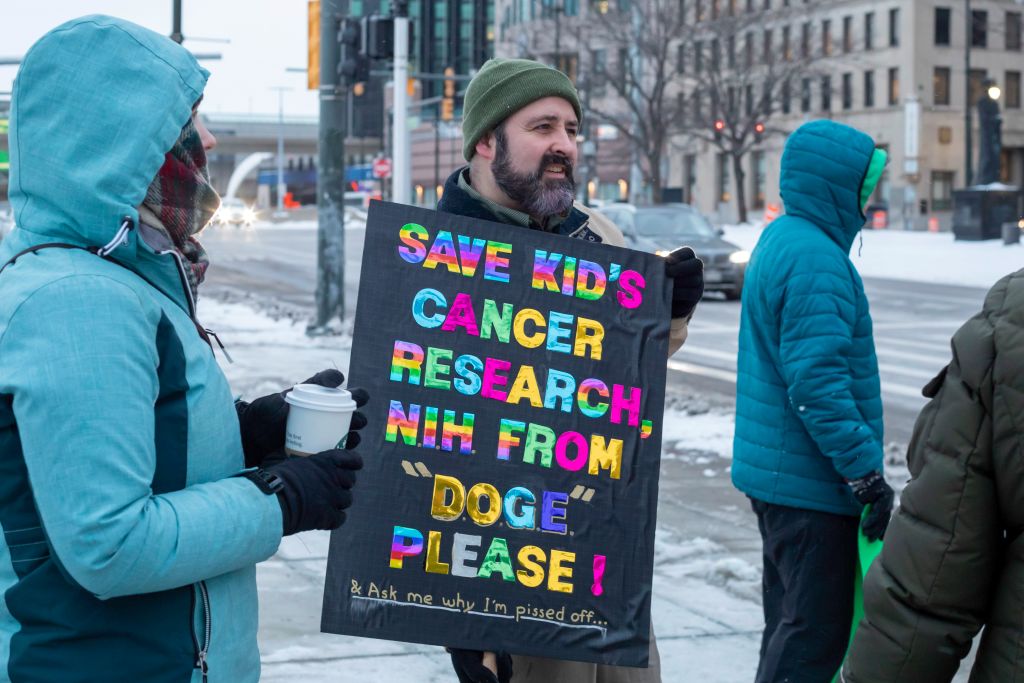Fauci says he knows of no order to slow down coronavirus testing
Dr. Anthony Fauci said he knows of no directive to slow down testing for the coronavirus, contradicting comments from President Trump, who has called testing a "double-edged sword" and claimed he ordered officials to cut back the number of tests.
The House Energy and Commerce Committee heard testimony on Tuesday from Fauci and other top Trump administration officials who have been leading the response to the coronavirus pandemic.
Fauci, head of the National Institute National Institute of Allergy and Infectious Diseases and one of the nation's leading infectious disease experts, responded to Mr. Trump's controversial comments during a rally in Oklahoma on Saturday, when he told a crowd that he "said to my people, 'Slow the testing down please.'" Mr. Trump doubled down on these remarks on Tuesday.
Fauci said he had never been directed to slow down testing, and did not know of other officials being told to do so.
"To my knowledge, none of us have ever been told to slow down on testing," Fauci told the panel. "It's the opposite. We're going to be doing more testing, not less."
Fauci said that the country's response to the pandemic was a "mixed bag." He praised the New York metropolitan area for reducing its number of cases, but expressed concern about an increase in other regions.
"The next couple of weeks are going to be critical in addressing those surges we're seeing in Florida, in Texas, in Arizona" and other states, Fauci said. He also said that the country needed to "establish a system" to respond to future outbreaks.
The longtime infectious disease expert told the panel that the National Institutes of Health was "mounting a major effort" in collaborating with public and private partners to conduct vaccine trials "that harmonize with each other." He said multiple vaccines are being developed, and that one vaccine would enter phase three of testing in July.
"Although you can never guarantee, at all, the safety and efficacy of a vaccine until you actually test it in the field, we feel cautiously optimistic," Fauci said. He expressed confidence that a vaccine could be ready by the end of this year or early 2021, saying it's a matter of "'when,' and not 'if.'"
He also discussed some of the public confusion around the virus, particularly the fact that so many people who contract it are asymptomatic. While he said this was "perplexing," he urged everyone, and particularly young people, not to become complacent.
Fauci appeared with Food and Drug Administration Commissioner Dr. Stephen Hahn, assistant Health Secretary Admiral Brett Giroir and Centers for Disease Control and Prevention (CDC) Director Dr. Robert Redfield. Hahn, Giroir and Redfield also confirmed that Mr. Trump had never told them to halt or slow down testing.
"Neither the president nor anyone in the administration has instructed or suggested that we should do less testing," Giroir said. "And we are proceeding in just the opposite [direction]. We want to do more testing, of higher quality."
Giroir said the U.S. is conducting around 500,000 tests per day, with the expectation that 40 to 50 million tests will be conducted per month by the fall. Giroir also announced that Morehouse School of Medicine would be granted $40 million to investigate and address the racial disparities in the spread of the pandemic.
Redfield said in his opening statement that the most effective methods of combating the pandemic continue to be social distancing, wearing face coverings and hand washing. Fauci declined to comment on why Mr. Trump does not wear a mask in public, saying there are "multiple factors that go into the president's not wearing a mask." However, he said he wore a mask to protect himself and others, and to set an example of best practices.
Fauci said that black Americans had been hit with a "double whammy" — they are more likely to work essential jobs which expose them to the virus and more likely to have underlying health conditions that can lead to complications. When asked if institutional racism was a factor, Fauci replied that it was.
"Obviously the African American community has suffered from racism for a very, very long period of time. And I cannot imagine that that has not contributed to the underlying conditions they find themselves in economically and otherwise," Fauci said.
Redfield also raised concerns that a second wave of the coronavirus could coincide with flu season.
"I encourage the American people to be prepared and to embrace flu vaccinations with confidence," Redfield told lawmakers. Giroir also said it was important for people to get flu vaccines, saying it could prevent tens of thousands of deaths and co-infections with the coronavirus.
There was some tension between questioners and the witnesses, particularly when discussing Mr. Trump.
When asked by Republican Congressman David McKinley if he believed Mr. Trump was being treated fairly by the media, Fauci said that was an "unfair question," and that everyone at the White House "is doing everything they possibly can to do what they need to do."
McKinley also asked Fauci if he regretted not telling the president to recommend people wear a mask earlier. "OK, we're going to play that game," Fauci replied. He explained that he didn't advise the public to wear masks at the outset of the pandemic, since there was a shortage of equipment available for medical professionals.
Fauci said he continues to work with the World Health Organization (WHO), even though Mr. Trump recently announced his plans to withdraw the U.S. from the group.
"We at the operational level continue to interact with the WHO in a very meaningful way," Fauci said.
More than 2.2 million people in the U.S. have tested positive for the coronavirus, the highest number of any country in the world, according to data compiled by Johns Hopkins. More than 120,000 Americans have died.
Vice President Mike Pence, who leads the White House Coronavirus Task Force, said Monday on a call with governors that the media has "focused on the new cases number." He told them that a "percentage of that is reflective of an extraordinary national success in testing and that we are identifying people."
Since Saturday's Trump rally, the White House has faced backlash over the president's testing comments. One senior White House official told CBS News those comments were made "in jest," while acting Homeland Security Secretary Chad Wolf told CBS News' "Face the Nation" that "I think that what you heard from the president was frustration." On Monday, Pence called the president's remark a "passing observation."
However, when Mr. Trump was asked by CBS News' Weijia Jiang on Tuesday if he was kidding when he made those remarks, Mr. Trump replied, "I don't kid."
